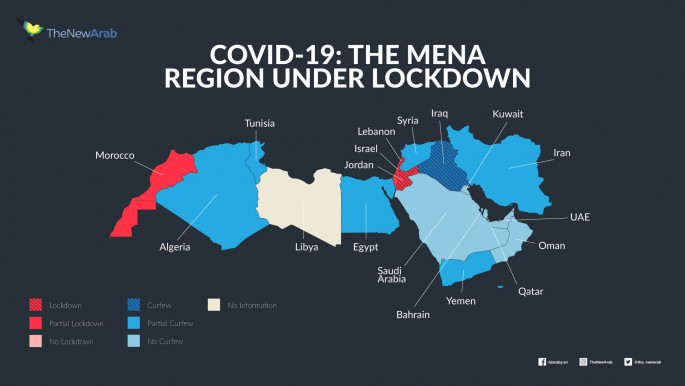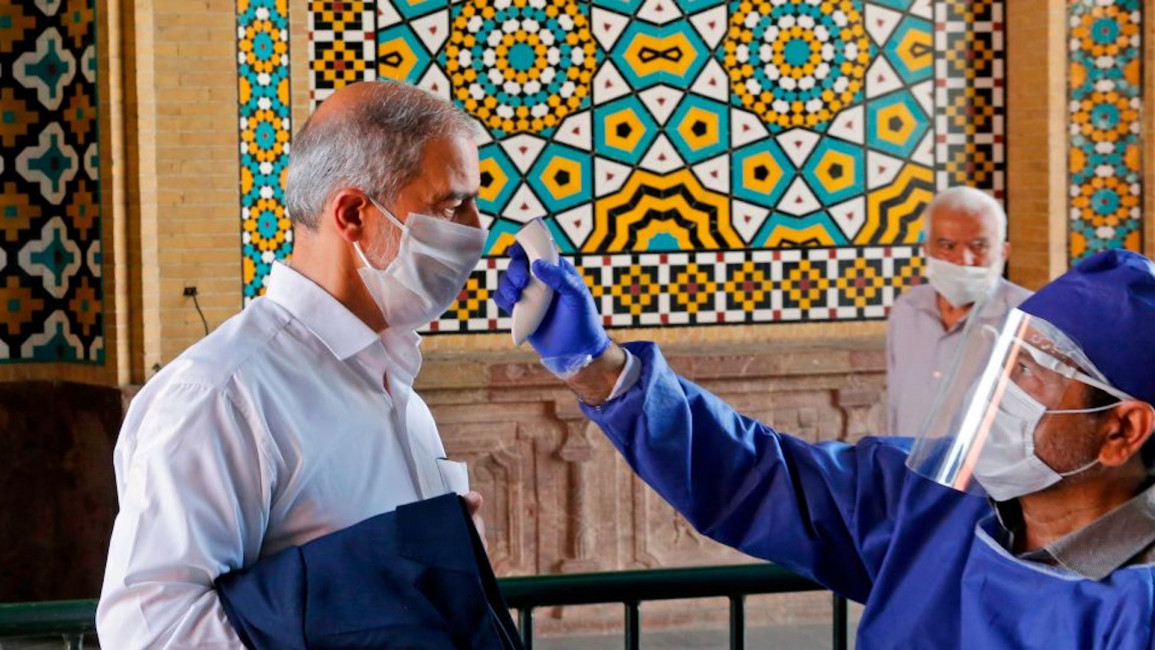Iran expecting 150,000 Pfizer-BioNTech vaccine doses from US benefactors
An unidentified group of US-based philanthropists plans to send 150,000 doses of the Pfizer-BioNTech vaccine to Iran in the coming weeks, Iranian media reported on Monday, in a step that could bring the hardest-hit country in the Middle East closer to inoculating its citizens against the coronavirus.
Details remained scarce in the report by the semi-official Tasnim news agency. It quoted the chief of the country's Red Crescent Society as saying he expects the vaccine created by American drug maker Pfizer and its German partner BioNTech to be imported by January 19 “based on coordination with a group of benefactors in the US"
Iran has struggled to stem the worst virus outbreak in the Middle East, which has infected over 1.2 million people and killed nearly 55,000.
Karim Hemmati, the Red Crescent director, said his organization plans to receive an additional 1 million vaccine doses, which on Sunday the semi-official Khabaronline.ir news website reported would come from China. The vaccines will be offered to citizens free of charge, Hemmati said.
Officials have said previously that importing the Pfizer vaccine, which must be shipped and stored at minus 70 degrees Celsius poses major logistical challenges for Iran.
Iran has signed up for COVAX, an international program designed to distribute coronavirus vaccines to participating countries regardless of their wealth. It's run in part by Gavi, The Vaccine Alliance. which says the US Treasury’s Office of Foreign Asset Control has already issued a license for Iran to take part. The US Treasury has not reacted to Iran's participation.
The chief of Iran's central bank, Abdolnasser Hemmati, told state TV last week that Iran had received approval to transfer a $244 million payment through an unnamed bank in a “third country” to obtain nearly 17 million doses of vaccines from COVAX. He did not provide further details, such as which vaccine or how the money would be sent. Under COVAX rules, Iran could at a maximum order enough doses to vaccinate half of its 82 million people.
President Hassan Rouhani said on Saturday that Iran would refuse to make the COVAX payment through US financial institutions for fear of confiscation. Since the start of the pandemic, political figures in Iran have pushed anti-American conspiracy theories about the spread of the virus and vaccine production, dismissing the prospect of US assistance.
“Who trusts you? Wherever you found our money you stole it," Rouhani said.
He added that Iran would not participate in human trials of foreign-made vaccines, vowing to provide the country with imported and locally produced vaccines.
Iran's homemade vaccine is due to enter a Phase 1 clinical trial soon, enrolling 54 volunteers across the country to receive two shots, state-run IRNA news agency reported. Iran's vaccine research has gained urgency as officials allege that heavy American sanctions will hamper the country’s mass inoculation efforts.
Although Iran retains routes to vaccines despite sanctions, including through its participation in COVAX, international banks and financial institutions are reluctant to deal with Iran for fear of American penalties.
Meanwhile, hard-line officials in Iran's Revolutionary Guard have rejected the use of foreign-made vaccines altogether. Last week, the deputy chief of the Revolutionary Guard, General Mohammad Reza Naghdi, said the Guard “does not recommend the injection of any foreign vaccine” candidates based on genetic material known as messenger RNA, which carries the instructions for cells to make proteins.
Follow us on Facebook, Twitter and Instagram to stay connected


![Minnesota Tim Walz is working to court Muslim voters. [Getty]](/sites/default/files/styles/image_684x385/public/2169747529.jpeg?h=a5f2f23a&itok=b63Wif2V)





![Israeli strikes on Beirut [Getty]](/sites/default/files/styles/image_330x185/public/2176155077.jpeg?h=a5f2f23a&itok=Xq7ypWgM)
